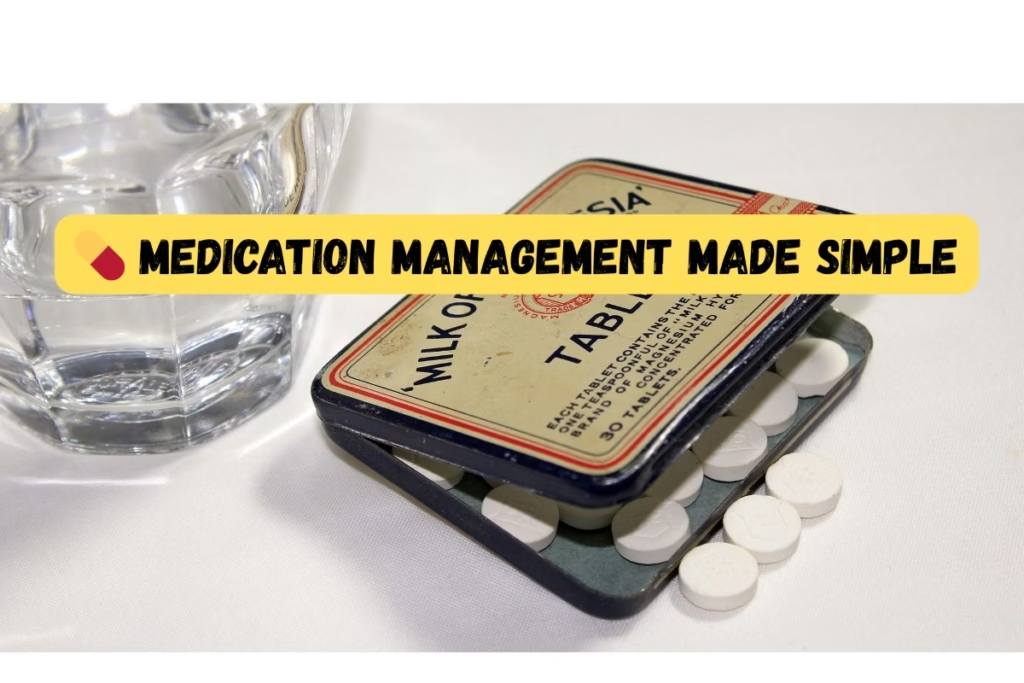Targeting the management of Parkinson’s Disease (PD) requires assembling an adept care team dedicated to the varying needs of those affected by this neurodegenerative disorder. A comprehensive approach to treatment enhances the quality of life and ensures that each aspect of the patient’s well-being is addressed meticulously. Integrating a multidisciplinary Care Team for Parkinson’s is crucial for optimal disease management.
1. Primary Core of the Parkinson’s Care Team
The Role of the Neurologist in PD Management
Managing Parkinson’s Disease (PD) requires the expertise of a neurologist, a physician specialized in treating nervous system disorders. Neurologists are pivotal in diagnosing PD, developing a personalized treatment plan, and providing ongoing disease management. They often lead the care team for Parkinson’s, coordinating with other healthcare professionals to ensure a comprehensive approach.
A neurologist’s extensive knowledge of PD allows them to adjust medications effectively and recommend other therapies such as physical, occupational, and speech therapy. Importantly, these specialists also address the non-motor symptoms that can significantly impact quality of life, such as sleep disturbances, mood disorders, and cognitive changes.
Parkinson’s Disease Nurse Specialists: The Liaisons of Care
At the heart of patient-focused care are Parkinson’s Disease Nurse Specialists. These nurses provide invaluable support and education for patients and their families. They liaise between patients and the broader healthcare team, ensuring seamless communication and tailored care.
Their clinical expertise in PD means they can often help manage side effects, adjust care plans, and give counseling on lifestyle changes that benefit those living with the condition. By offering support on medication regimes and troubleshooting common problems, they greatly enhance the effectiveness of the treatment plan.
How Primary Care Providers Contribute to Continuity of Care
Primary Care Providers (PCPs) are crucial to managing Parkinson’s Disease, primarily because they can offer continuity of care. They often have long-standing relationships with their patients, allowing them to readily recognize changes in health status.
The ongoing relationship with a PCP means they can coordinate with specialists such as neurologists to ensure that all aspects of a patient’s health are addressed. They are also ideally positioned to manage comorbidities and routine health concerns, which can significantly affect the well-being of someone with PD.
In conclusion, each care team member brings their unique skills and perspective to managing Parkinson’s Disease, a multifaceted condition requiring a multidisciplinary approach. By working closely together, the care team aims to improve the patient’s quality of care through informed and compassionate care.
2. Specialized Medical Professionals in PD Care
Movement Disorder Specialists: A Focused Expertise
Managing Parkinson’s Disease (PD) often requires the guidance of a Movement Disorder Specialist, a neurologist who has additional training in Parkinson’s and other movement disorders. These specialists possess a deep understanding of the complexities of PD and are best equipped to tailor treatments to individual patient needs. Their arsenal includes advanced medication management, knowledge of surgical interventions like deep brain stimulation, and guidance on complementary therapies.
Neuropsychologists: Addressing Cognitive and Emotional Health
Neuropsychologists play a crucial role in the Care Team for Parkinson’s Disease by focusing on cognitive and emotional well-being. Parkinson’s can affect mental functions and mood, leading to challenges such as memory issues, difficulty with problem-solving, and depression. These professionals apply specialized assessments to evaluate these concerns and provide therapies that support mental health and enhance quality of life.
Physiatrists and Rehabilitation Specialists: Enhancing Mobility and Function
Physiatrists, rehabilitation physicians, and specialists devote their expertise to improving mobility and daily function for PD patients. They closely evaluate how PD affects an individual’s physical capabilities and work on designing comprehensive rehabilitation programs. These may include exercises, therapies, and assistive devices to maintain or increase strength, flexibility, balance, and coordination.
In addition to these experts, a multidisciplinary approach often integrates the skills of physical and occupational therapists, speech-language pathologists, and others. Such an approach is vital to address the wide-ranging effects of Parkinson’s on a person’s life. Working together, the care team strives to ensure that each patient can live as independently and thoroughly as possible.
3. The Role of Allied Health Professionals
Understanding the Contributions of Allied Health Professionals
Managing Parkinson’s Disease (PD) goes beyond medication and regular doctor visits; it involves a comprehensive approach, leveraging the expertise of various allied health professionals. Each professional plays a critical role within the care team for PD, contributing unique skills to enhance the quality of life for individuals living with PD.
How Physical Therapists Aid Parkinson’s Management
Physical therapists are instrumental in devising and guiding exercise programs tailored explicitly for PD patients. The exercises are designed to improve mobility, balance, and strength, which can help counteract the physical limitations caused by the disease. Tailored exercises are essential in maintaining current levels of function and potentially slowing the progression of PD symptoms.
The Role of Occupational Therapists
Occupational therapists ensure that individuals with Parkinson’s can perform daily living activities to the best of their abilities. They provide strategies and tools to adapt these activities around the patient’s limitations, promoting independence. This may include techniques for dressing, cooking, or adapting the home environment to reduce the risk of falls and facilitate more effortless movement throughout the space.
Speech and Language Therapists in PD Care
Communication and swallowing complications are common in Parkinson’s Disease, and that’s where speech and language therapists come in. They work with patients on exercises and techniques to improve speech clarity and maintain voice strength. In addition to communication, they also offer therapies to address swallowing difficulties, ensuring that patients can maintain proper nutrition and reduce the risk of aspiration.
The dynamic support these allied health professionals provide can significantly improve the daily lives of those affected by Parkinson’s Disease. They form a vital part of the multidisciplinary approach required for effective PD management, working alongside doctors, nurses, and caregivers to provide comprehensive care.
4. Integrative and Supportive Care Professionals
The Contribution of Dietitians to a PD Care Plan
A dietitian plays a vital role in the care team for Parkinson’s Disease, ensuring patients receive tailored nutritional guidance. With Parkinson’s, individuals may face difficulties with chewing, swallowing, and digestion. A specialized diet can address these issues, aiding medication efficacy and overall well-being. Dietitians work closely with patients to create nutritious meal plans, ease the symptoms, and contribute to a better quality of life.
Social Workers: Advocating for Patient and Caregiver Support
Social workers are staunch advocates for both the individual with Parkinson’s and their caregivers. They provide essential resources and emotional support, helping patients navigate the complexities of care. Support for caregivers is also a priority, as social workers assist in coordinating respite services and support groups, which are critical for maintaining the health of those who help others daily.
Psychiatrists and Counselors: Navigating Mental Health in PD
In dealing with the mental health aspects of Parkinson’s Disease, psychiatrists and counselors are vital to addressing the psychological challenges that accompany the condition. They offer strategies for managing depression, anxiety, and cognitive changes, enhancing patient emotional resilience. Through therapy and, when appropriate, medication, these professionals ensure that mental health is holistically integrated into the patient’s care plan, which is crucial for the optimal management of Parkinson’s disease.
5. Building Your Care Team for Parkinson’s Disease
Assessing Individual Needs for a Personalized Care Team
When managing Parkinson’s Disease, no two patients are the same. This is why evaluating each individual’s unique medical and support needs is critical. A personalized care team for Parkinson’s may include a neurologist specialized in movement disorders, a primary care physician, physical and occupational therapists, a speech-language pathologist, and a mental health professional.
Consideration should also be given to including a dietitian, a social worker, and a palliative care specialist. These professionals help address various aspects of the disease, such as mobility, nutrition, mental wellness, and overall quality of life. Furthermore, family members often play a vital role in the care team, offering invaluable everyday support.
How to Coordinate Among Your Care Team Members
Effective communication is key to synchronizing the efforts of all care team members. Technology, such as healthcare apps or shared digital health records, can facilitate the exchange of important medical information. It’s essential for all parties, including the patient, to be informed about treatment plans, appointments, and medical updates.
Scheduling regular team meetings can help ensure everyone involved is on the same page and that care is streamlined. These meetings can happen virtually or in person. Remember, as a patient or caregiver, don’t hesitate to ask questions and discuss any concerns with your healthcare providers. Your input is crucial for shaping an integrated approach to your care.
Maximizing the Benefits: Staying Active in Your PD Care
An active role in managing Parkinson’s Disease can lead to better outcomes. Stay informed about your condition and the latest treatment options. Education is a powerful tool that empowers patients and caregivers to make informed decisions.
Exercise and healthy lifestyle choices are also paramount in managing the symptoms of Parkinson’s Disease. Engage in regular physical activity, eat a balanced diet, and prioritize mental health. By maintaining an active lifestyle, you help your body combat the physical challenges of the disease and potentially slow its progression.
Aligning with support groups can provide emotional backing and practical advice. Peer networks often share insights only those living with the disease can offer. These groups can serve as an extension of your care team, offering support and understanding throughout your journey with Parkinson’s Disease.
Proactive Insight: Understanding that Parkinson’s Disease affects each individual differently is pivotal. Hence, the Care Team for Parkinson’s must be versatile and responsive, adapting as the condition evolves. Gathering a team with a tailored set of skills provides a robust support system, empowering patients to navigate the complexities of their journey with Parkinson’s more confidently.


